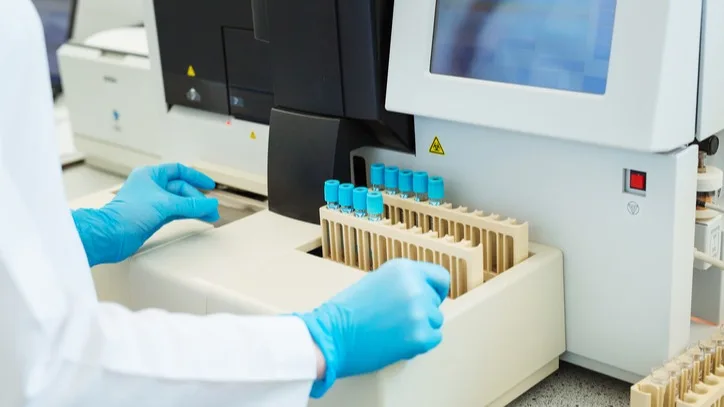
Overview
Scientists are scrambling to manage surging costs as President Trump's sweeping tariffs on imported laboratory equipment begin to bite.
New Import Taxes Raise Costs for Scientific Equipment While Research Budgets Face Unprecedented Pressure
Microscopes from Germany, DNA sequencers from Canada, glassware from China—these are just a few of the countless items used by academic, healthcare and life science research labs in the U.S. that are set to cost more under President Trump’s tariffs.
Import taxes on essential laboratory equipment and supplies now range from 10 percent to as much as 54 percent, significantly increasing the cost structure of doing science, according to a recent Nature report.
A survey of U.S. biotech companies showed that nearly 90 percent rely on imported components for at least half of FDA-approved products, and the tariffs would hurt their business, according to BIO, the organization that conducted the outreach.
“This survey demonstrates the far-reaching and potentially damaging impacts of the proposed tariffs on our biotechnology industry, on biomedical research and on patients,” said BIO President and CEO John F. Crowley in a statement.
The tariffs come amidst already strained research budgets due to widespread funding cuts and grant cancellations initiated since President Trump’s second term began in January (see “Mayhem, Destruction and Biomedical Tumult from Trump Cuts”).
Hospitals, Clinics Hit with Rising Lab Tariffs
Beyond medical research, other healthcare sectors are worried about the impact of their costs going up. Nine organizations including patient advocacy groups and associations for home healthcare workers, hospitals, medical colleges, dentists and medical product distributors published a letter warning about the potential fallout from higher prices of instruments and supplies.
“These products are lifesaving, life-sustaining, and help deliver the timely care Americans need,” the organizations wrote in their letter to U.S. Trade Representative Jamieson Greer. The tariffs “could result in longer wait times, reduced access to necessary treatments, and greater financial strain on health care systems that are already under pressure.”
Medical Innovation Impacted by Tariffs
The medical device industry is similarly affected. AdvaMed CEO Scott Whitaker described the tariffs as effectively an excise tax on medical technology, which could reduce innovation, eliminate jobs, and elevate healthcare costs overall.
“If implemented as proposed, broad-based tariffs of this nature would act much as an excise tax,” Whitaker said in a statement. “It will have a negative impact on innovation, cost jobs, and increase overall costs to the health care system.”
Hospitals and other care settings relying on lab-based diagnostics also anticipate higher costs and potential supply shortages. A Black Book Market Research poll found that nearly 90 percent of healthcare executives predict medical equipment costs will rise at least 18 percent by the end of 2025, while 97 percent anticipate pharmaceutical expenses increasing by more than 15 percent. More than 20 percent of supply chain leaders said procurement timelines have already lengthened for surgical kits, diagnostic components and imaging devices.
"The second wave of tariffs is no longer a theoretical threat -- it's a full-blown disruption with immediate consequences," said Doug Brown, Founder of Black Book Research, in a news release. "Healthcare organizations are shifting budgets, freezing projects, and forming crisis response teams to manage this economic shock."
Black Book found healthcare executives are scrambling to find new sources for their supplies with countries that have favorable trading agreements with the U.S. Other strategies in reaction to the expected rising costs include stockpiling equipment and stronger advocacy and lobbying efforts.
Trump’s 90-day pause to tariffs provides executives and industry groups time to argue against reinstating them at the end of the three-month period.
“Moving forward, we will spend the next 90 days working with the President and his senior team to ensure the unique role of the MedTech industry is protected, with the hope that the ultimate outcome is ‘zero for zero’ tariffs on MedTech with all key trading partners,” AdvaMed said in a statement.








